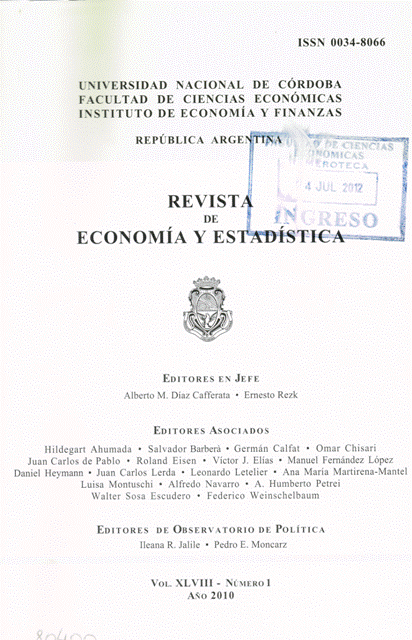Fiscal Activism in Booms, Busts, and Beyond
DOI:
https://doi.org/10.55444/2451.7321.2010.v48.n1.3872Keywords:
fiscal activism , booms and busts, consolidation, expenditure policiesAbstract
This paper discusses activist fiscal policies during good times, the crisis period and for the post-crisis period. The study argues, first, that fi scal policies were overly imprudent during the boom phase preceding the crisis. This was due to excessive expenditure growth and problems with measuring the output gap and fiscal stance. Second, during the crisis, too much emphasis was placed on the need for (activist) fiscal demand support despite demand excesses in the boom years in several countries. Fiscal activism focussed less (and less strongly than needed) on the balance sheet nature of the crisis and the significant misallocation of resources. Third, and given strong increases in public expenditure ratios in the crisis, timely fi scal exit strategies need to bring these down to sustainable levels so as to regain fiscal sustainability and to create an environment conducive to consolidation and growth.
Downloads
References
Afonso, A., Ch. Nickel and P. Rother (2005), “Fiscal Consolidations in the Central and Eastern European Countries”, ECB Working Paper No. 473.
Agnello, L. and L. Schuknecht (2009) Booms and Busts in Housing Markets: Determinants and Implications, ECB Working Paper 1071.
Bouthevillain, C., J. Caruana, C. Checherita, J. Cunha, E. Gordo, S. Haroutunian, G. Langenus, A. Hubic, B. Manzke, J. J. Pérez and P. Tommasino (2009), “Pros and cons of various fiscal measures to stimulate the economy”, Banque centrale du Luxembourg Working Paper No. 40, September, and Banco d’España Economic Bulletin, July.
Marco Buti and Paul van den Noord (2005),“What is the Impact of Tax and Welfare Reforms on Fiscal Stabilizers?”, in Willi Semmler (ed.), Monetary Policy and Unemployment, Routledge, pp. 252-271.
Cimadomo, J. (2008), “Fiscal policy in real time”, ECB Working Paper No. 919.
Detken, C. and L. Alessi (2009) Real time early warning indicators for costly assest price boom/bust cycles: A role for global liquidity, ECB Working Paper.
European Commission (2007) Public Finances in EMU, European Economy 3, Brussels.
European Commission (2009) Public Finances in EMU. European Economy 5, Brussels.
European Commission. European Economic Forecast. Autumn 2009. Brussels.
European Commission, forthcoming 2010, Surveillance of Competitiveness, Brussels.
Freedman, C., Kumhof, M., Laxton, D. and J.Lee (2009), “The case fro global fiscal stimulus”, IMF staff position note, SPN/09/03, Washington (D.C.), International Monetary Fund.
Guichard, S. et al. (2007), “What Promotes Fiscal Consolidation: OECD Country Experiences”, OECD Economics Department Working Papers, No. 553.
Hauptmeier, S., Heipertz, M. and L.Schuknecht (2006), “Expenditure reform in industrialised countries. A case study approach”, European Central Bank, Working Paper Series, No. 634, Frankfurt/Main, ECB.
Hauptmeier, S., F. Holm-Hadulla, P. Rother (2010), “The impact of numerical expenditure rules on budgetary discipline over the cycle”, forthcoming ECB Working Paper.
IMF (2009), “Debt bias and other distortions: crisis-related issues in tax policy”, IMF, Working Paper, Washington (D.C.), International Monetary Fund.
Jaeger, A and L.Schuknecht (2007), “Boom-Bust Phases in Asset Prices and Fiscal Policy Behaviour”, Emerging Markets Finance and Trade, Vol.43, No.6, pp.45-86.
Koopman, G.-J. and I.P. Székely (2009), “Impact of the current economic crisis and financial crisis on potential output”, European Economy Occasional Papers, XX/2009, Brussels, European Commission.
Kremer, J., Rodrigues Braz, C., Brosens, T., Langenus, G., Momigliano, S. and M. Spolander (2006), „A disaggregated framework fort he analysis of structural developements in public finances” ECB, WP No 579, Frankfurt/Main, ECB.
Martinez-Mongay, C., Maza Lasierra, L.A. and J. Yaniz Igal (2007), “Asset Booms and Tax Receipts: The case of Spain, 1995-2006”, European Economy Economic Papers, No 293, Brussels.
Melander, A. and J.Morgan (2009), “How has the crisis affected growth prospects? What are the main sources of uncertainty and how are they affecting economic activity?” delivered at Joint ECB/DG ECFIN Workshop, Frankfurt, 1-2 October 2009.
Morris, R. and L. Schuknecht (2007), “Structural balances and revenue windfalls. The role of asset prices revisited”, European Central Bank, Working Paper Series, No 737, Frankfurt/Main, ECB.
Nickel, C. and I. Vansteenkiste, “The interaction between fiscal policy and the current account: the role of Ricardian equivalence”, Frankfurt, memeo.
Tagkalakis, A. (2009) Fiscal adjustments and asset price movements, Bank of Greece Working Paper 104.
Tanzi, V. (2009), “Comments on recent fiscal developments and on exit strategies” delivered at the “Vancouver Seminar: The Crisis Response and Road to Recovery”, Bank of Canda, November 30-December 1, 2009, Vancouver, Canada.
Tanzi, V. and L.Schuknecht (2000), „Public spending in the 20th century. A global perspective”, Cambridge University Press.
Downloads
Published
How to Cite
Issue
Section
License
Copyright (c) 2010 Ludger Schuknecht

This work is licensed under a Creative Commons Attribution-NonCommercial-NoDerivatives 4.0 International License.
Authors who have publications with this journal agree to the following terms:
Authors retain their copyright and grant the journal the right of first publication of their work, which is simultaneously subject to the Creative Commons Attribution-NonCommercial-NoDerivatives 4.0 International License that allows third parties to share the work provided that its author and first publication in this journal are indicated.
Authors may adopt other non-exclusive licensing arrangements for distribution of the published version of the work (e.g. depositing it in an institutional telematic archive or publishing it in a monographic volume) as long as the initial publication in this journal is indicated.
Authors are allowed and encouraged to disseminate their work via the Internet (e.g. in institutional telematic archives or on their website) before and during the submission process, which can lead to interesting exchanges and increase citations of the published work. (See The Open Access Effect)









